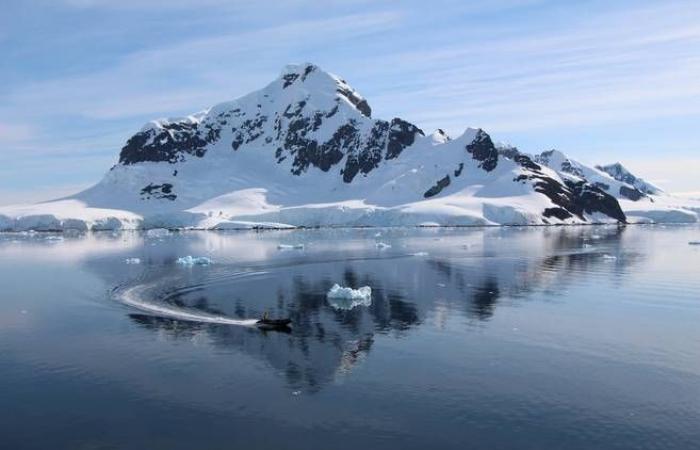The melting is caused by now warmer ocean water seeping between the ice and the land it sits on.
A climate tipping point is a critical threshold beyond which a system reorganizes, often abruptly and/or irreversibly, leading to a series of cascading consequences.
Antarctica’s ice sheets sit on bedrock and extend beyond the coast to float on the sea. Previous studies have shown that seawater, whose temperature rises as a result of global warming caused by human activities, could infiltrate into the meeting zone between the land and the sea and thus progress under the terrestrial ice, ever further inland.
Warming of the sea
The study published Tuesday in the journal Nature Geoscience confirms this hypothesis and quantifies it through modeling: as seawater warms, intrusion accelerates over short distances of 100 meters up to tens of kilometers, melting the ice by heating it by the bottom, explains the study’s lead author, Alexander Bradley.
This “may lead to the passing of a tipping point, beyond which ocean water enters in an unlimited manner under the ice sheet, via a process of uncontrolled melting,” warns the study.
With the risk of sea level rise, when accelerated melting outpaces the formation of new ice on the continent, threatening coastal populations around the world.
Underrated
However, the models used by the United Nations Intergovernmental Panel on Climate Change (IPCC) to project the impact of global warming on Antarctica did not take this phenomenon into account. They also systematically underestimated the ice loss observed so far, according to the study, which says these models need to be updated.
But above all “this only highlights the need for urgent climate action to prevent these tipping points from being exceeded,” underlines Mr. Bradley, researcher at the British Antarctic Survey.
In May, the temperature of the planet’s oceans once again beat, for the 14th month in a row, a new monthly record, reaching an average of 20.93°C, according to the European Copernicus network.
“Every tenth of a degree [de réchauffement] brings us closer to this type of process, these tipping points are getting closer and closer,” warns Mr. Bradley.






